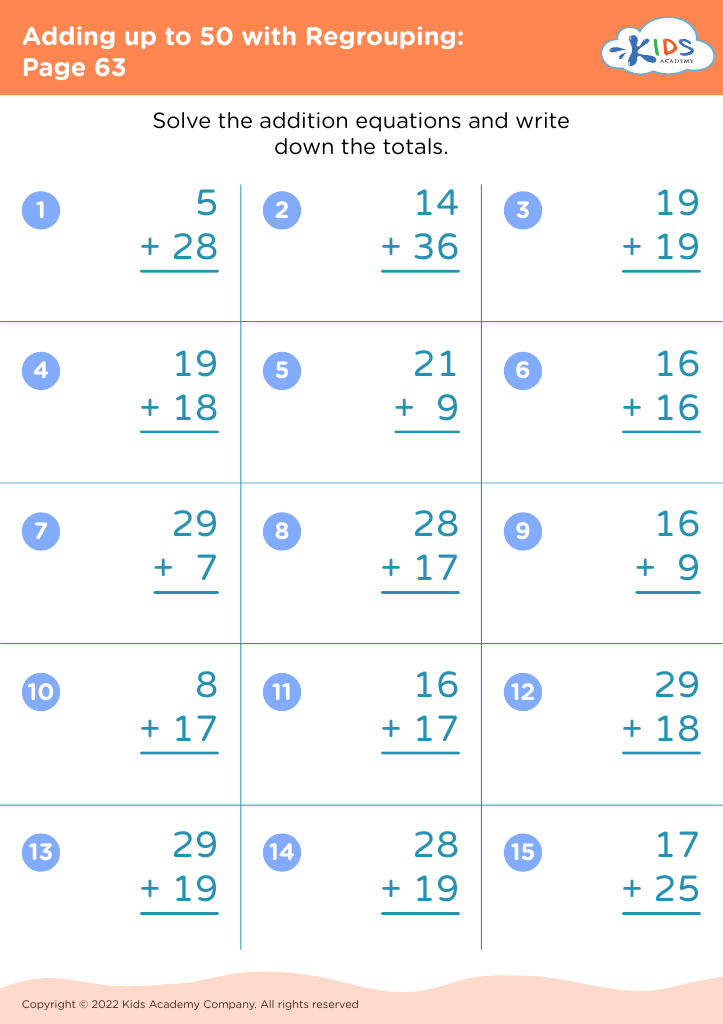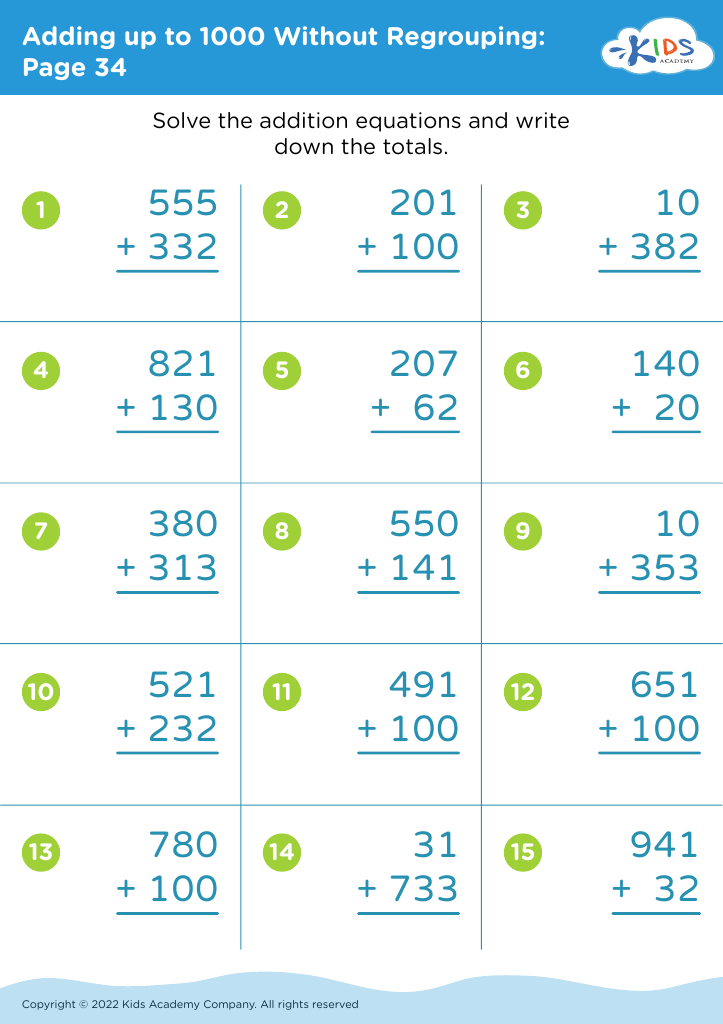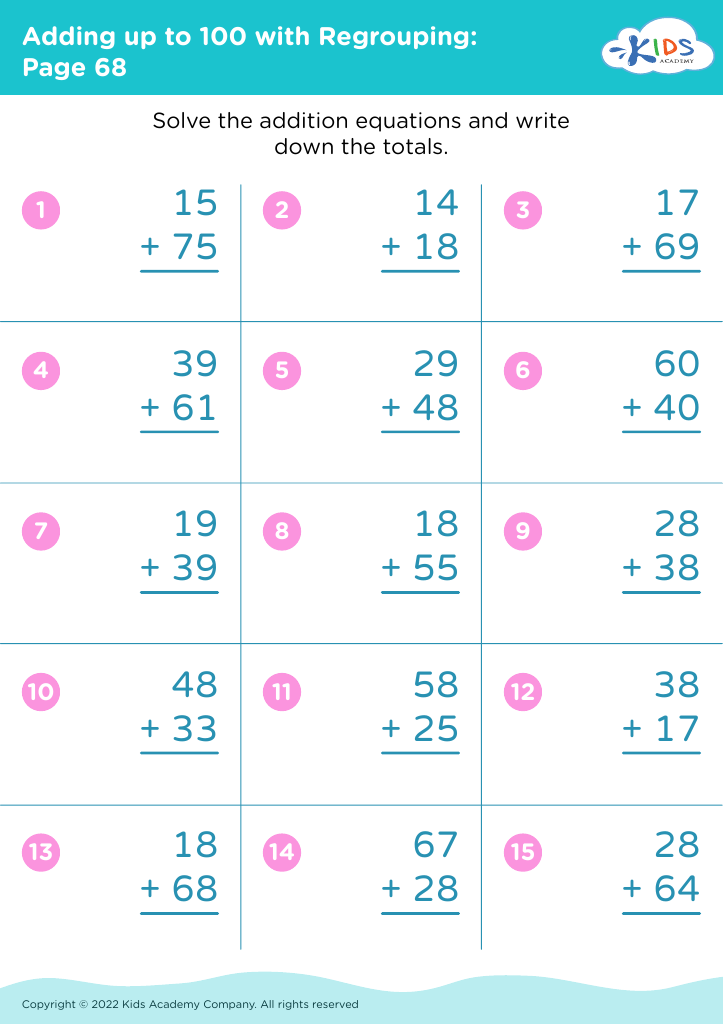Understand subtraction Worksheets for Ages 5-7
6 filtered results
-
From - To
Discover engaging and educational "Understand Subtraction" worksheets designed specifically for ages 5-7. These expertly crafted printables from Kids Academy make learning subtraction concepts fun and effective. Children will master essential skills such as recognizing numbers, visualizing subtraction problems, and applying their knowledge in practical scenarios. With vibrant illustrations and step-by-step instructions, our worksheets ensure youngsters build a strong mathematical foundation. Perfect for educators and parents, these resources foster a love for learning and boost confidence in math. Empower early learners with the tools they need to succeed in their educational journey with Kids Academy's subtraction worksheets.
Understanding subtraction for ages 5-7 is critical because it sets a strong mathematical foundation that supports future learning. At this developmental stage, children’s brains are highly receptive to new concepts, and mastering subtraction lays the groundwork for more advanced arithmetic, such as multiplication and division. It also enhances problem-solving skills, as many real-life situations require an understanding of “taking away” or finding the difference between quantities.
Moreover, early proficiency in subtraction nurtures a child's confidence in math. Building this confidence at a young age helps prevent math anxiety, which can deter students from engaging with the subject throughout their educational journey. Subtraction also fosters critical thinking and analytical skills, which extend beyond math to other academic disciplines and everyday decision-making.
For parents and teachers, ensuring that children grasp subtraction involves creating a supportive and engaging learning environment, using hands-on activities like counting objects, and relating math to real-world scenarios. Consistent encouragement and patience not only help children understand subtraction but also make learning fun and meaningful. By investing time and effort into teaching subtraction early, parents and teachers are setting their children up for long-term success in both school and life.






















